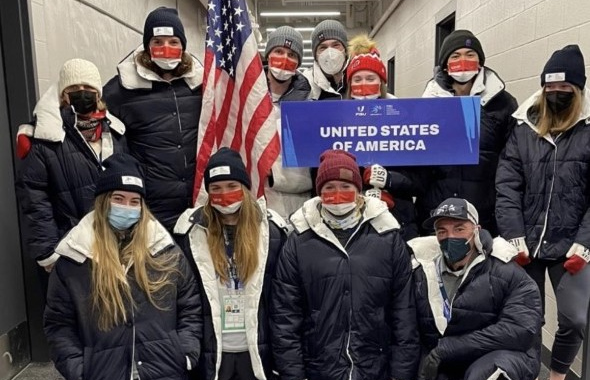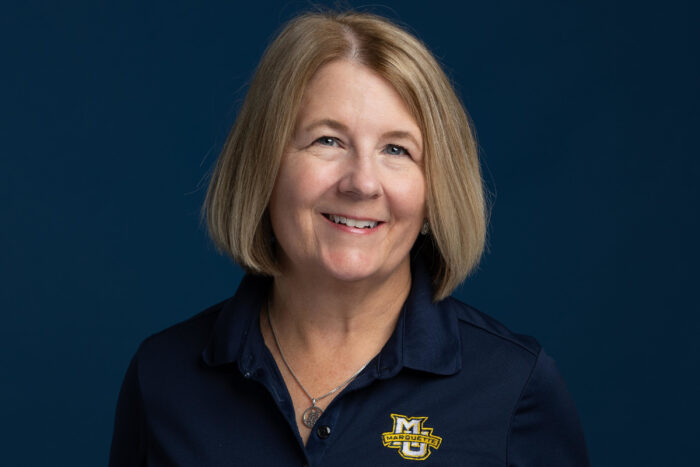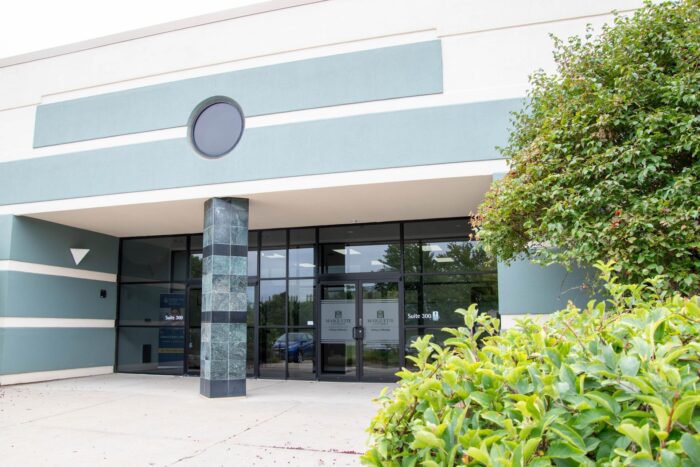Bella Main and Jon Aquino competed at the World University Championships
By Jill Nuelle, communication intern in the Office of Marketing and Communication
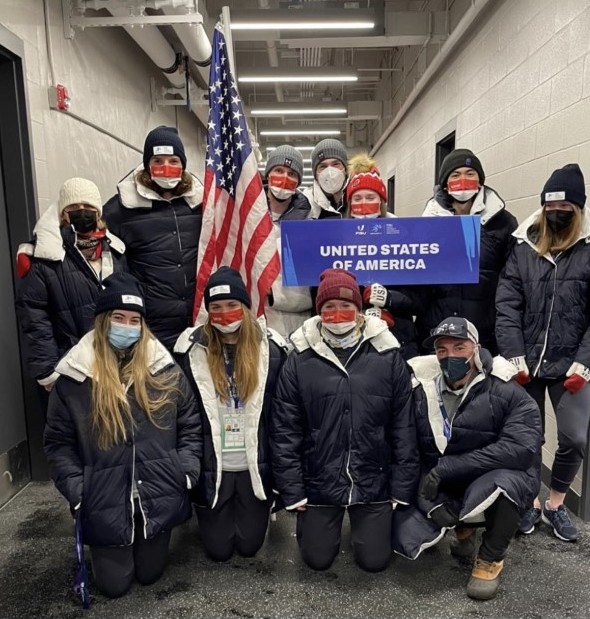
Just nine athletes represented the United States at the FISU World University Speed Skating Championships March 2-5 at Lake Placid, New York — two of these super skaters are Marquette students.
Jon Aquino, a junior studying mechanical engineering in the Opus College of Engineering, began speed skating when he was six years old. Year by year, he improved and attended national competitions throughout the U.S.
The sport was a way to relieve his excess energy as a child, he explains. A self-proclaimed “crazy kid” who loved to run around, Jon was accustomed to being the fastest on the playground — racing on ice was perfect for him.
Bella Main is enjoying her first semester at Marquette after transferring into the College of Business Administration following a gap year focused on training. Similar to Jon, she got her speed skating start at the young age of four. They have been competing side by side for most of their lives.
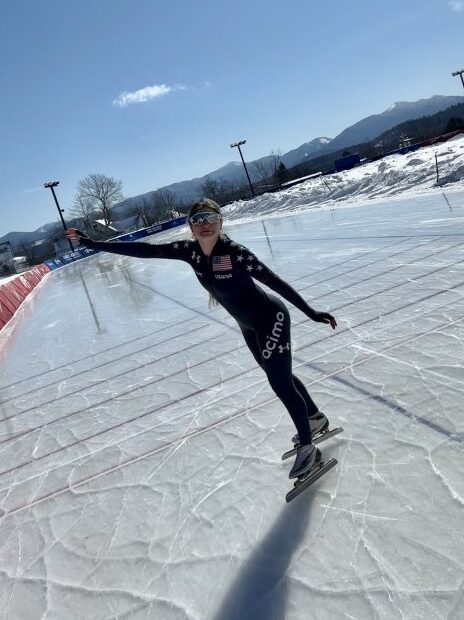
Both skaters found Marquette a great fit due, in part, to its proximity to the Pettit National Ice Center, which allows these student athletes a convenient training site while attending classes.
Bella and Jon face the unique challenge of balancing elite athletic training with their educational responsibilities. The World University Championships acknowledge athletes in this position and allow college students to compete on the international stage.
Dave Tamburrino, regional development coordinator for U.S. Speed Skating, notes the important distinction between this and other international meets.
“It’s hard enough being an elite athlete and training to compete against the best in the world. It’s also incredibly difficult to be a college student attending a great academic institution like Marquette,” Tamburrino says. “Imagine doing both — not only training as an elite athlete, but also making sure that you’re performing well academically. I have a tremendous amount of admiration and respect for what Jon and Bella are accomplishing.”
Tamburrino knows well the rigors of competitive speed skating as a college student — he attended Marquette while training for the Olympics in 1994.
His Marquette connections don’t end there. The former University Advancement staffer earned a J.D. from the Law School in 2015 while maintaining his day job as director of corporate and foundation relations. Now, he has returned to his U.S. Speed Skating roots.
As regional development coordinator, he ensures the development and improvement of all athletes throughout the performance spectrum. At Lake Placid this past March, he served as coach for the U.S. team along with three-time Olympic medalist Amy Peterson.
Jon and Bella agree that the element of the competition they enjoyed most was hearing about athletes’ experiences from other countries.
Fewer countries participated this year due to the pandemic; however, there was still a competitive field featuring some of the fastest speed skaters in the world. Along with the U.S., teams represented Japan, the Netherlands, Germany, Hungary, Poland, Norway, Finland and the Czech Republic.
Tamburrino says participating in a competition of this caliber is important for the student athletes.
“Competing in a big competition like this is absolutely critical for long-term development as elite athletes,” he says. “It’s kind of like jumping in the pool. The only way to do it is to just get in. They handled the pressure and performed beyond expectations.”
Jon remembers being a nervous skater at first. Yet, with practice, his nerves calmed until about 15 when they disappeared completely. Now, when he is at the line, he doesn’t feel nervous at all — no matter which competition he’s at.
For Bella, the competition was an opportunity to have fun. She technically trains full time as a short track skater, but she competed in long track at Lake Placid, which allowed her to experience the competition with less pressure on her.
Both skaters emphasize that the most rewarding element of the sport is the community they have built with their teammates.
“I wouldn’t be able to have fun or enjoy all of this without my team,” Jon says.
Bella agrees: “I’ve been doing it for so long that I’ve known these people for 12-plus years. It just makes it more fun when you’re super close with people but they’re also there for your commitment to train for the sport.”
